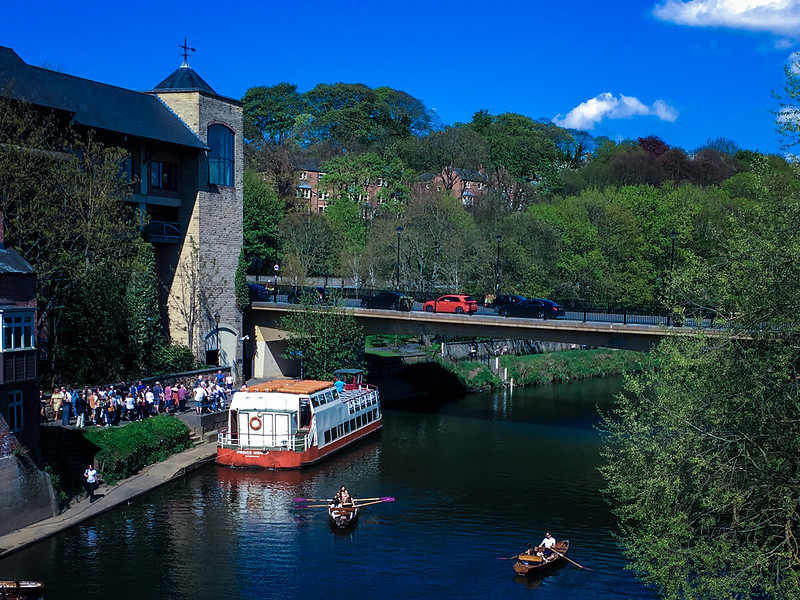Geothermal mine water system in development in Durham, UK
Development is set to begin on a geothermal mine water scheme that harnesses heat from flooded and abandoned mines for supply to the Seaham Garden Village.
Development is set to start on a system in County Durham, UK that will supply geothermal heat from the Coal Authority‘s Dawdon mine water treatment scheme to the Seaham Garden Village, a future community of 750 affordable homes, 750 privates homes, a school, shops, and medical and innovation centres.
The scheme is also close to existing commercial buildings, a supermarket, and the coastal village of Seaham with a population of around 21,000. It is a collaboration between the Coal Authority, the Durham County Council, and Tolent Construction.
The Dawdon mine water treatment scheme consolidates water from an extensive network of abandoned coal mines and treats it before getting pumped out to sea. However, mine water heat can also be an renewable energy source that is unaffected by external factors, is not subject to future variations or rises in energy prices, and has the potential to have a zero carbon footprint.
With one quarter of UK homes and businesses sited on former coalfields, mine water energy could be seen as crucial to when it comes to solving the Britain’s energy crisis, with Seaham Garden Village potentially the first of many similar schemes. The Coal Authority estimates that there is enough energy in UK’s flooded and abandoned mines to supply heat to all of the homes on the coalfields.
The scheme is also unusual in that it does not use metal pipes because of the relatively lower temperatures involved. This is a cheaper method of delivery with lower heat loss, making such networks more viable that most district heating schemes.
“Heat from abandoned coal mines is an innovative and practical solution to one of the big challenges facing the economy – decarbonising our heating supplies,” said Coal Authority Head of Innovation Jeremy Crooks. “Water in the mines is heated by geological processes, and remains stable year-round. This constantly renewing available, zero-carbon heat resource, can be transferred to a pipe network using a heat exchanger and distributed to nearby homes, and the Seaham Garden Village development will be the first working example of this network.”
“We have set ambitious targets for reducing carbon emissions over the coming years and are thrilled to be part of such an exciting project that will really put County Durham on the map when it comes to renewable energy,” said Durham Councilor Kevin Shaw. “By introducing it to our former coalfield areas, we will make them more attractive to investors, while helping to combat fuel poverty. The project also complements both our Housing Strategy and our new Towns and Villages Regeneration scheme.”
Earlier this year, the Durham City Council had received a £110,000 grant for a feasibility study on using mine water in Horden to provide geothermal heat to greenhouses. Also involved in this effort are the Coal Authority, the East Durham Trust, and the East Durham Business Services.
Source: Gov.UK


















